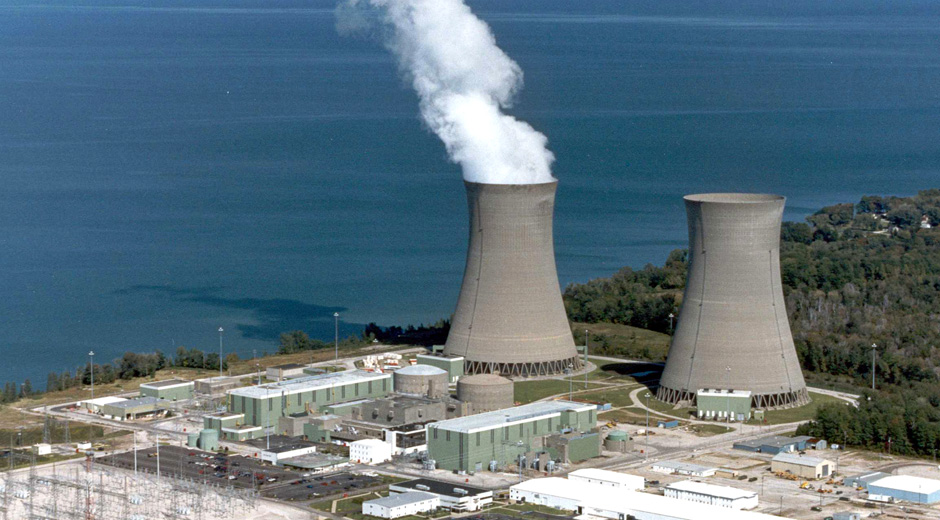
Photo: FirstEnergy
As renewable energy technology has grown over the past decades, many states have used procurement mandates to help maximize the percentage of their energy mix that comes from carbon-free energy sources. These mandates have been very effective at reducing the cost of renewable energy but as Travis Kavulla, director of energy policy at the R Street Institute, explained, the nuclear energy lobby has taken advantage of these mandates to help subsidize their industry. Kavulla wrote for Politico that “In numerous states, companies with large investments in nuclear energy — including Exelon, First Energy, Dominion and PSEG — have lobbied states to reconfigure their clean-power incentives to subsidize existing nuclear plants, rather than the emergent technologies that the laws were intended for. The result is a contagion of subsidies to nuclear power plants that started in Democratic states like Illinois and New York in 2016, spread to Connecticut in 2017 and New Jersey in 2018.”
In fact, state lobbyists have been so effective that they have altered state laws so that a “zero emission facility” is now defined as being a power plant “fueled by nuclear power” in some states. Instead of these laws working to spur an array of renewable technologies and help drive down costs for ratepayers, they’re directly subsidizing nuclear power plants that are likely profitable on their own without government help.
Kavulla also explained that:
- These state policies starkly differ from other carbon-reduction policies, such as a carbon tax or a cap-and-trade program.
- Those policies have the advantage of aiming directly at their target: carbon emissions. While potentially costly, either would circulate revenue back to consumers or taxpayers, or use that revenue on government spending intended to amplify the program’s core purpose.
- That’s not the case here. The nuclear subsidy schemes are an elaborate greenwashing that neither returns money to the public nor further reduces carbon emissions.
- And these are not cheap programs. Exelon booked $150 million in 2017 from the sale of ZECs produced by its six Illinois nuclear plants. New Jersey just last week gave final approval to a $300 million annual tranche of subsidies, over the objections of one utility regulator who called it a “disgrace.”
- By propping up older technologies like existing nuclear reactors, these state bailouts actually risk doing harm to innovative technologies looking to break into the market.
Why This Matters: By undermining state schemes to support renewables, the nuclear industry is stifling the development of wind and solar energy. As Kavulla also noted, “The necessity of acting on climate change is palpable in our politics today. But the answer is a genuine competition between low-emission producers through a market for carbon, not handouts to the nuclear industry.” So despite how people feel about nuclear energy, it’s not fair for the industry to diminish other clean energy sectors while passing the costs onto consumers. Unfortunately, the Supreme Court just made it easier for states to continue giving these handouts.
One more thing to note: A recent report revealed that the vast majority of America’s nuclear reactors are susceptible to climate-related extreme weather like flooding.
April 25, 2019 » energy subsidy, nuclear, nuclear subsidy, Supreme Court


